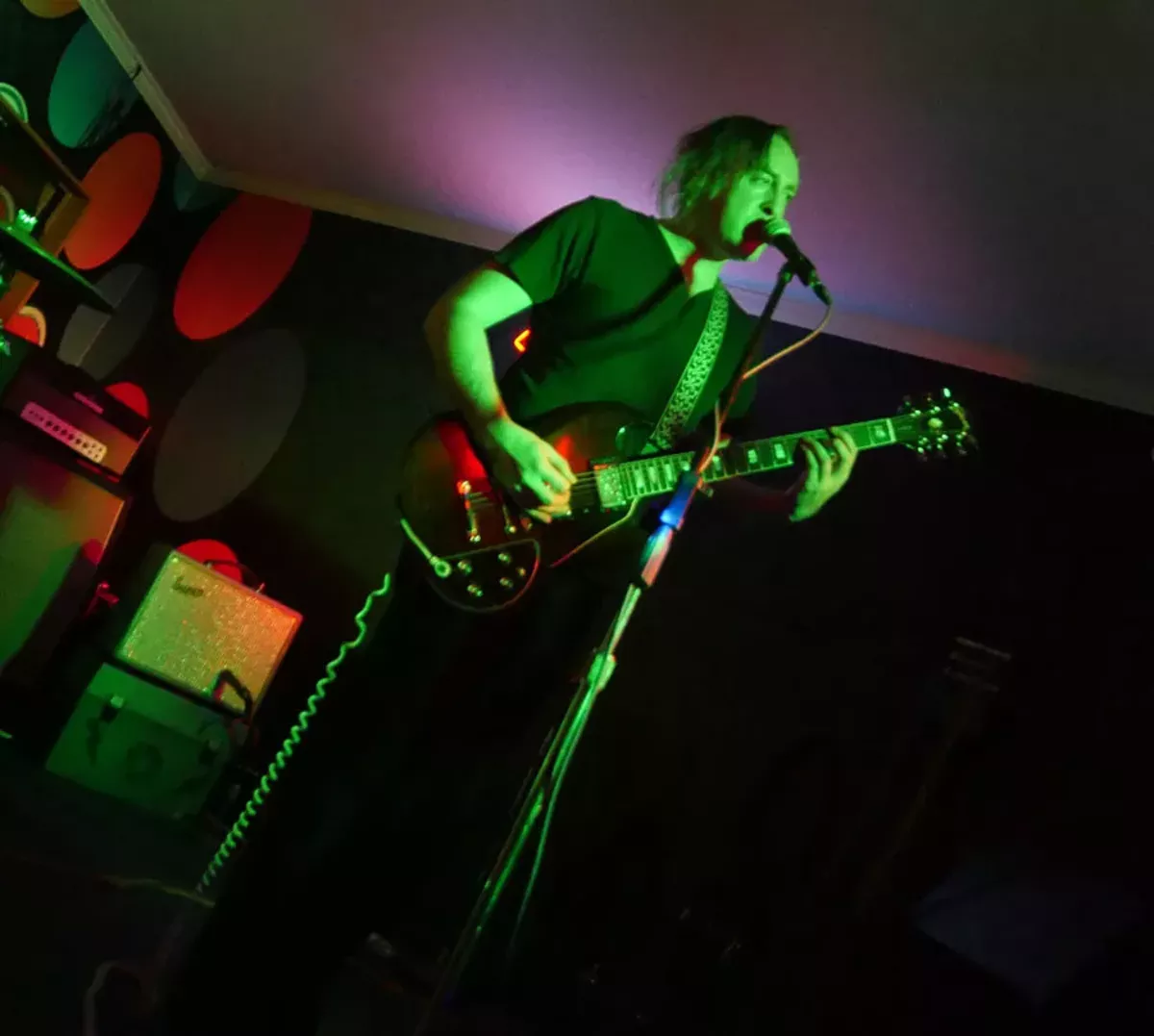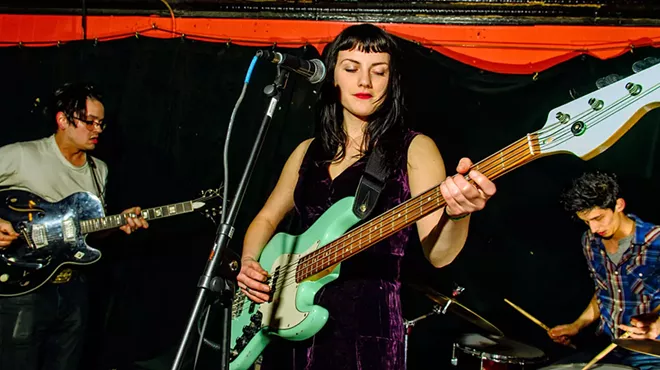Work, appointments, deadlines, business lunches, family dinners, and pre-sleep binge-watching: For many, navigating the schedule of an average week can be taxing.
What if you were throwing one of the most outrageously jam-packed and wildly anticipated music festivals in all of Detroit? It takes a handful of volunteers, a gaggle of bands chomping at the bit, and a caffeinated army of bartenders and barbacks to transform "The World in Two Square Miles" into one hell of a main stage. For music teacher and event co-organizer Eugene Strobe, the fifth annual Hamtramck Music Fest may not be a total cakewalk yet, but the weekend-long blowout is getting bigger, better, and safer.
Strobe reveals the ins and outs of pulling off the impossible.
Eugene Strobe: It's the neighborhood feel and the closeness of all the bars, clubs, coffee houses. Hamtramck has always been a very blue collar, working-class-type place and the community has always been tight. In modern times, it's become more diverse with different ethnicities moving in, different backgrounds. You've got your hipsters and your Polish grandmas sweeping the streets and then you have the diverse populations from all over the world. It's the most diverse little city on the planet. It seems so unique. And it's so cool that it's smack-dab in the middle of Detroit.
MT: Was the original festival intended as a one-off event or was the goal always to have it return each year?
Strobe: It's been a tradition in Hamtramck to have a music festival that weekend in March because the original music fest (Metro Times' former Blowout Music Festival) used to piggyback with Wayne State's spring break so college kids that weren't leaving town would have something to do that weekend. So, when we started taking over that weekend it was always this thing, a tradition. We've always had the outlook of, "It's going to happen every year and we are trying to make it better and better."
MT: How is this year different? How have you worked to improve it?
Strobe: Well, we're learning how to organize it better. There's always challenges. It's crazy. One of the biggest challenges is whoever decides to volunteer that year kind of determines how the festival looks. The amount of bookers depends the amount of venues, which determines what equipment we need to bring, the sound people we have to secure. It's a tidal wave.
We also have to have our own promotional timeline. We have to print wristbands, posters, and news hits and radio spots. On top of that, getting every band name spelled right on the poster. That stuff is nuts.
MT: Last year's event was embroiled in conflict when it was revealed that a member of one of the participating bands was a registered sex offender while another musician faced accusations of sexist and racist comments aimed at other bands on the bill. Has the festival changed policies to ensure a safer space this year?
Strobe: We implemented a zero tolerance policy on all of our applications this year. If a band applies, they know that we have a zero tolerance policy and have a safe space initiative in place. It makes the public more aware of our expectations. We are all volunteers. We have no corporate sponsorship for the festival at all. It's just a bunch of community organizers who care about Hamtramck and the music scene, and want to provide a safe entertaining time for everyone.
We also work closely with the city of Hamtramck. And we work closely with their public safety. In the past when there's been an issue we've reported it immediately to the authorities. It's always been a good partnership with the city and they've been very supportive.
MT: Detroit's musical history is so rich and we are known for our festivals. Movement, Jazz Fest. Where would you see HMF in the musical impact of the city?
Strobe: We definitely focus on presenting it as a very diverse, multi-genre festival. We want to incorporate as many different bands as possible. That's part of the character of the festival. We want people to be surprised when they walk into a venue because they don't know what to expect. They may have their plan going into it but they'll get sidetracked and bump into a friend and walk into another bar and be exposed to a different type of band they've never seen before. That ranges from funk to techno, to garage, to indie, to classical, to jazz, to blues, and hip-hop, and we really try to have it be a true mixed bag. I mean, we have 162 bands this year.
MT: Do you have advice for a first-timer and what you might suggest for a seasoned HMF vet?
Strobe: First-timers, if they've never been to Hamtramck before it's a really great way to see the city. Just go in with an open mind and enjoy yourself. Don't be afraid to ask a local what you should see or what you should try. And again, this year, we have free shuttle service through Smart, making the festival accessible for visitors.
As for the vets, it's like a roulette game. You spin the ball and see where you land. There are so many surprises. You have so much to explore. It's always fresh and new, even if you've gone every year.
MT: What are you most worried about as an organizer? What are you most excited about as a festivalgoer?
Strobe: I'm most worried about getting everything where it needs to go, in terms of people and equipment, safely. I'm excited to be able to bounce from venue to venue and see everyone enjoy themselves and experience some new music.
I don't have the luxury of listening to all the bands when they apply, so every year I literally go through the poster and pick out which band names sound the coolest and I go see them.
The Hamtramck Music Fest will take place Thursday, March 1, through Sunday, March 4; More information is available at hamtramckmusicfest.com; Wristbands are $10.








